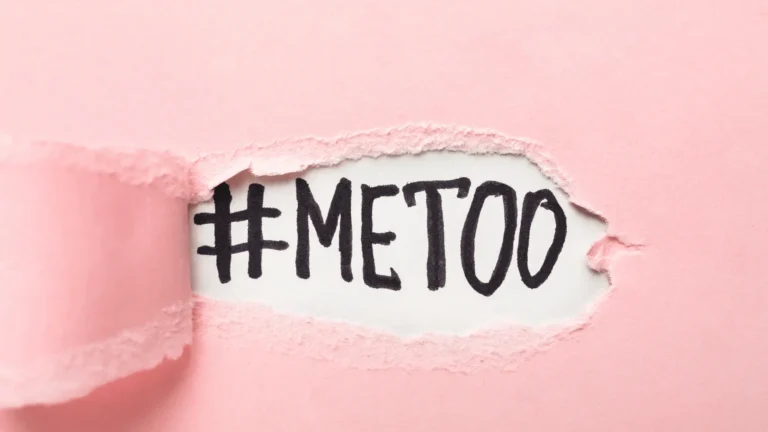William Barr, the Attorney General Nominee, was asked several questions about sex trafficking during the Senate Confirmation Hearing on January 15, 2019.
Two of these questions stood out.
On January 9th, the National Center on Sexual Exploitation (NCOSE) wrote a letter to Senators of the Judiciary Committee, requesting that they address William Barr’s “commitment to rigorous enforcement of the nation’s laws combating sexual exploitation and to the development of institutional policy directives which also advance this end.”
As Attorney General, William Barr would be an instrumental ally in the fight to combat sexual exploitation in America. Accordingly, the National Center on Sexual Exploitation makes a point of writing to Senators with each new Attorney General nominee to recommend questions regarding the spectrum of sexual exploitation issues facing the country.
One issue NCOSE addressed was the proliferation of small sex trafficking websites popping up after Backpage.com was taken down by the Department of Justice in 2018.
NCOSE wrote, asking Senators to address online sex trafficking websites:
For nearly a decade the U.S. Department of Justice (DOJ), while having the legal authority, failed to prosecute websites like Backpage.com—a “company” with a business model dedicated to the promotion of prostitution and facilitation of sex trafficking. DOJ’s failure to take proactive steps against this entity and its principal agents allowed the problem of Internet-based commercial sexual exploitation to metastasize and for Backpage.com to become its global “industry” leader. While we are deeply gratified that last year DOJ arrested Backpage’s principals and shut down its operations, these actions came years too late—especially for those whose sexual exploitation and even deaths were facilitated by its operations. Moreover, DOJ’s historic inaction and the lawless Internet-environment that it engendered has given rise to copycat platforms, which likewise seek to profit from sexual exploitation. Many of these platforms still exist today and, in the vacuum created by Backpage’s shutdown, are seeking to fill the void. Thus, before a clear heir to the Internet-based sexual exploitation market can emerge, we desire assurance that under Mr. Barr the U.S. Department of Justice will investigate and prosecute such entities posthaste.
Additionally, because sexual exploiters—be they the mega-pimps behind Internet-based platforms, sex traffickers, or sex buyers—adapt to law enforcement pressure, it is important for law enforcement agencies to anticipate shifts in criminal behavior and to respond adroitly. For this reason, should he be confirmed, we request confirmation that Mr. Barr will take steps within the Criminal Division aimed at anticipating and following technologies used by sexual exploiters. For instance, we are especially concerned that sexual exploiters are increasingly using social media platforms such as Instagram, Snapchat, and Facebook to recruit and purchase minors for commercial sex. DOJ’s future law enforcement measures must include proactive measures aimed at increased understanding of the modalities of sexual exploitation, as well as collaboration with social media companies to eradicate criminal exploitation occurring on their platforms.
During the hearing, Senator Blackburn (TN) picked up on this theme and asked William Barr to address online sex trafficking websites popping up in Backpage.com’s absence.
She stated, “We know when you shut down a site like Backpage, the big one, then you have a lot of small sites that proliferate. And it’s really going to take a lot of effort to arrest this situation…so I would hope that you will be committed to putting an end to this kind of violence in online trafficking.”
William Barr replied: “I don’t know that much about the problem and what resources are currently being devoted to it in the Department but I would like to come by and talk to you further about it, if I’m confirmed.”
NCOSE also wrote to Senators asking them to address the need to combat demand for sex trafficking and prostitution (i.e. sex buyers):
For the past two decades, efforts to fight sex trafficking have typically addressed two sides of the triangle of activity that comprises sex trafficking—supply (i.e., victims) and distribution (i.e., sex traffickers).[i] The third side of this triangle, demand (i.e., male buyers of people in the prostitution marketplace)[ii] has received considerably less attention, despite calls to address demand dating to the mid-2000s.[iii] The irony of this situation can scarcely be overstated, since demand for prostitution is the fulcrum on which all sex trafficking rests. Failure to combat sex buyer demand guarantees the survival of sex trafficking and future generations of victims.
…
Accordingly, we seek assurance that Mr. Barr will actively pursue efforts to combat demand for commercial sex and uphold NSPD-22 (e.g., promptly issuing the guidance directed by the Abolish Act; providing technical and financial support to state and local law enforcement efforts aimed at prosecuting commercial sex buyers; issuing internal guidance delineating that DOJ does not endorse “sex work” or full decriminalization of prostitution) and ensure that DOJ anti-trafficking funding directives support such initiatives.
During the hearing, Senator Sasse (NE) picked up on this theme and asked William Barr to address “pledge broadly to attack sex trafficking as a scourge in our society on both the supply side and on the demand side, as these dirt bags demand this, and on the supply side as these organizations clearly perpetrate these crimes.”
William Barr said that America can “count on it” that addressing these issues would be a priority for him if he is confirmed.
We are grateful to Senators Blackburn and Sasse, along with many other Senators who spoke to Barr about the need to address sex trafficking in various forms.
We hope that Americans can continue to rally around bipartisan solutions for freedom from sexual exploitation.
Learn more about federal policy recommendations by the National Center on Sexual Exploitation at www.sexploitationfreedomagenda.com.
[i] Laura J. Lederer, “Addressing Demand: Why and How Policymakers Should Utilize Law and Law Enforcement to Target Customers of Commercial Sexual Exploitation,” Regent University Law Review 23, no. 2 (2010):297‒310.
[ii] Ibid.
[iii] For instance, the Trafficking Victims Protection Act of 2005 contained provisions addressing demand for commercial sex acts in the U.S. and in connection to international sex tourism, as well as other demand-related provisions. Additionally, a few NGOs have emphasized combating demand (e.g. Global Centurion, Demand Abolition, the Coalition Against Trafficking in Women), but this is in stark contrast to the hundreds of groups that have emerged which are dedicated to providing victim services. See also Donna M. Hughes, “The Demand: Where Sex Trafficking Begins,” address at “A Call to Action: Joining the Fight against Trafficking in Persons, U.S. Embassy and the Holy See, Pontifical Gregorian University,” Rome, Italy (June 17, 2004).




